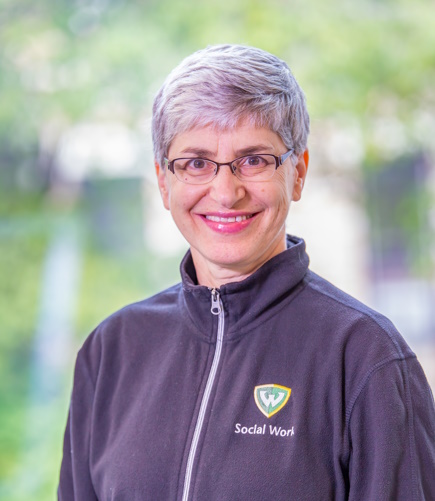Here for you: School of Social Work launches initiative to increase mental health providers in Wayne County schools
School social workers are frequently among the first to see children in school who are stressed, traumatized, and at increased risk of hurting themselves or others. This trusted relationships school social workers build causes student to be 21 times more likely to visit them for treatment than anywhere else. Schools that employ more school-based mental health providers see improved attendance rates, lower rates of suspension or other disciplinary incidents, expulsion, improved academic achievement, career preparation and graduation rates. Although these statistics are compelling, Michigan’s students are still not receiving the emotional, social and behavioral support they need due to a lack of school and educational social workers.
Thanks to a Mental Health Service Professional Demonstration Grant received by the Michigan Department of Education, up to 11 Wayne State University Master of Social Work (MSW) students who complete internships in high-need Wayne County schools will each receive up to $20,000 to cover tuition and other educational costs. The School of Social Work was invited to participate in the program which provides competitive grants to support and demonstrate innovative partnerships to train school-based mental health service providers for employment in schools and local educational agencies (LEAs).
“This year more than 185 applications for the grant were submitted, and out of those, only 67 awards were given,” said Scott Hutchins, School Mental Health and Medicaid Consultant, Michigan Department of Education Office of Health and Nutrition Services. Hutchins is a liaison for the project, and invited WSU to collaborate with other universities.
“Our application was among the highest-scoring applications received and recommended for funding, which means starting fall 2023, we’ll be able to provide up to 185 stipends to interns and their supervisors over the next five years,” Hutchins said.

“MSW/second-year students need to agree to do an internship in a high-need school in Wayne County that is part of the Wayne Regional Educational Service Agency (RESA). They must also commit to working with these schools post-graduation for a minimum of one year,” said Anwar Najor-Durack, assistant professor clinical, assistant dean for student affairs.
This is not the first fore into workforce development and training programs for the School of Social Work with Najor-Durack leading the charge. Within the last decade alone, the school has partnered with Wayne State faculty, departments, and community agencies on multiple federal and state funded training grants to bolster Michigan’s workforce specializing in child welfare; substance use disorder prevention, screening, treatment and recovery services; trauma-informed integrated healthcare and behavioral health for children, adolescents and youth; and behavioral health focused opioid and substance use crisis intervention.
Approximately 40% to 60% of students attending high-need schools are from low-income households, and the ratio of students to qualified mental health services providers is two to 13 times higher than nationally recommended levels. In addition, on-time graduation rates rank near the bottom 25% of schools in Michigan.
“We are one of two social work programs in the state (along with psychology and counseling) to participate. The program’s goal is to increase the number of school-based mental health-based services providers in high-need local educational agencies (schools) in the state of Michigan,” Najor-Durack said.
The ultimate goal of this initiative is to hire at least half of the graduate trainees as mental health services providers after they complete their year-long internship. Another objective is to place graduate trainees who come from diverse backgrounds or communities served by high-need LEAs. Barriers for diverse students include greater financial need, lack of inclusivity, exposure to microaggression, and less social support.
“This stipend will have a huge impact on students as it allows them to attend full-time without having to work as much and focus on successfully completing the program quicker. Simultaneously, it will prepare students to work in demanding settings that need well-trained social workers,” she said.
The Wayne State University School of Social Work currently offers a path to obtain temporary approval by the State Department of Education, which required for employment as a school social worker and a School Social Worker Refresher course for those who do not yet have full approval or would like to return to school social work after a break in the profession. For more information on temporary approval visit the Social Work in School webpage or contact Temporary Approval Coordinator Karen Weiner at ah9301@wayne.edu. For additional information on the School Social Worker Refresher course, visit the SSW Continuing Education website.
Author: Laura Hipshire laurahipshire@wayne.edu